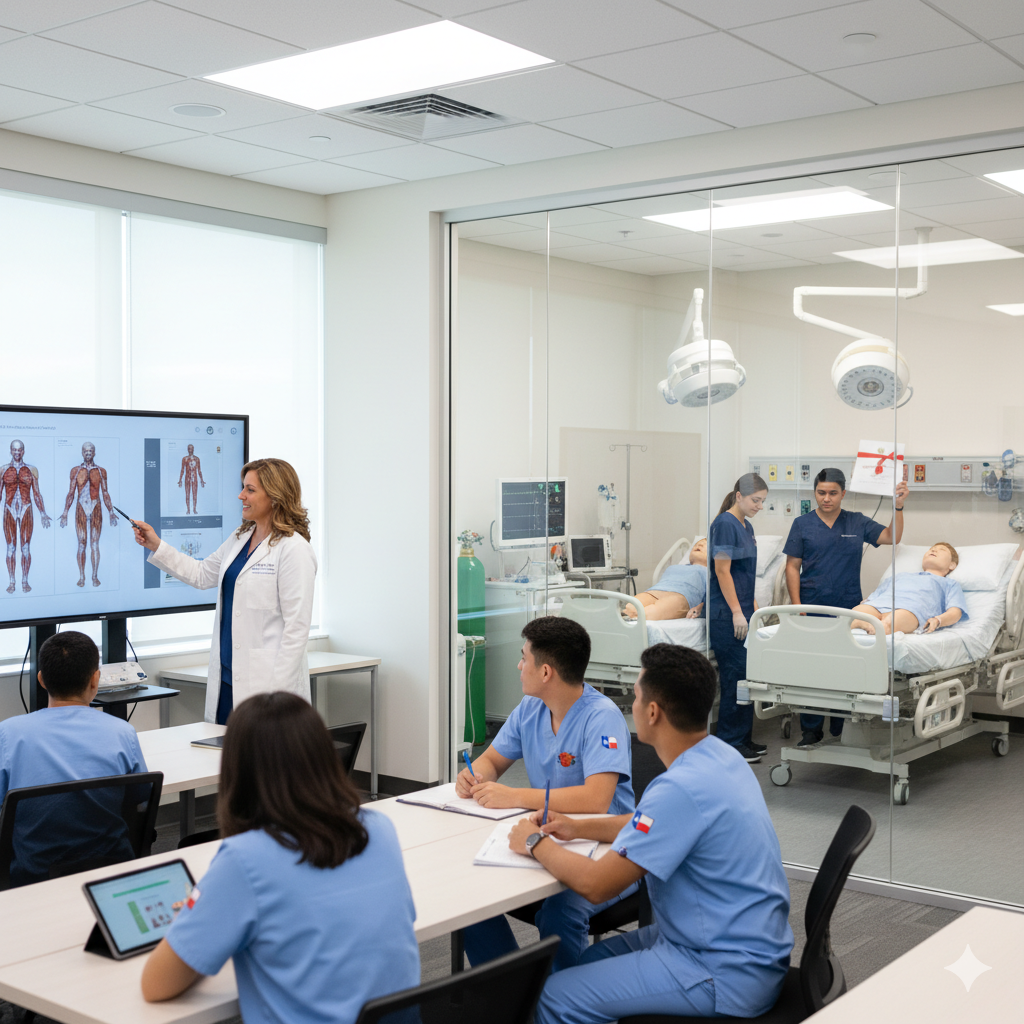Preparing for the NCLEX (National Council Licensure Examination) is one of the most important milestones for nursing graduates in the U.S. The exam determines whether you are ready to begin practicing as an entry-level nurse, and passing it requires not only knowledge but also strategy, focus, and excellent time management skills.
For many NCLEX aspirants, the challenge isn’t just about learning the content—it’s about managing study hours, balancing practice tests, and handling the stress that comes with preparation. Without proper time management, even the most dedicated students can feel overwhelmed.
In this blog, we’ll explore why time management matters for NCLEX aspirants and share practical tips to help you make the most of your study time, stay consistent, and walk into the exam room with confidence.
In this blog, we’ll explore the significance of BLS and ACLS certifications, their differences, how they benefit healthcare professionals, and why they are essential for career growth in the U.S.
Why Time Management Is Crucial for NCLEX Preparation
Large Syllabus Coverage
The NCLEX covers a wide range of topics, from safe and effective care environments to health promotion, pharmacology, and psychosocial integrity. Without proper scheduling, it’s easy to neglect important areas.Prevents Last-Minute Cramming
Rushed preparation can lead to burnout and anxiety. Effective time management ensures a balanced, steady pace of learning.Improves Retention
Consistently reviewing smaller chunks of information over time improves long-term memory compared to marathon study sessions.Boosts Confidence and Reduces Stress
A structured study plan creates a sense of control. When you know exactly what to do each day, you reduce stress and approach the exam more confidently.Helps Balance Life and Studies
Many NCLEX aspirants juggle jobs, family responsibilities, or personal commitments. Time management helps strike a balance between study and personal life.
Effective Time Management Tips for NCLEX Aspirants
1.Create a Personalized Study Schedule
Start by assessing your available time before the exam. Break down the content areas into weekly or daily targets. For example:
Week 1–2: Pharmacology and Safe Environment
Week 3–4: Maternal and Pediatric Nursing
Week 5–6: Practice Tests and Weak Areas
Pro Tip: Use planners, calendars, or apps like Google Calendar, Notion, or Trello to organize your schedule.
2. Use the Pomodoro Technique
The Pomodoro Technique helps you maintain focus and avoid burnout. Study for 25–30 minutes, then take a 5-minute break. After four sessions, take a longer break (15–20 minutes).
This method helps with concentration, especially when tackling difficult subjects like pharmacology or critical care.
3. Prioritize High-Yield Topics
Not all topics carry the same weight on the NCLEX. Focus on high-yield areas, such as:
Safety and Infection Control
Pharmacology (drug classifications, side effects)
Management of Care
Physiological Adaptation
Spending more time on these sections increases your chances of scoring well.
4. Practice with NCLEX-Style Questions Daily
Dedicate at least 1–2 hours daily to practice questions. This not only sharpens your knowledge but also trains you to manage time effectively during the actual exam.
Set timers while practicing to simulate the real test environment.
5. Avoid Multitasking
Trying to study while scrolling social media or watching TV reduces efficiency. Dedicate focused, distraction-free time blocks to your study sessions.
Consider turning off notifications or using apps like Forest or Focus@Will to stay on track.
6. Break Down Large Tasks
Instead of saying, “I will study Pharmacology today,” break it down into smaller, manageable tasks like:
Learn antibiotic classifications
Revise cardiac medications
Practice 30 pharmacology NCLEX-style questions
Smaller goals feel less intimidating and are easier to track.
7. Mix Study Techniques
Monotony kills productivity. Use a variety of study methods:
Flashcards (digital or physical)
Video lectures
Group discussions
Practice tests
Switching methods helps maintain engagement and enhances retention.
8. Schedule Review Sessions
Set aside time each week to review previously studied topics. Without review, it’s easy to forget older material as you move forward.
The “Spaced Repetition” technique works best: review content after 1 day, 3 days, 7 days, and 14 days.
9. Balance Study and Rest
Overstudying can lead to burnout. Schedule breaks, sleep, and relaxation into your daily routine. Aim for 7–8 hours of sleep each night to optimize focus and memory.
10. Simulate Exam Conditions
At least once a week, take a full-length mock test under timed conditions. This not only tests your knowledge but also conditions your mind and body to sit through long exams without fatigue.
11. Learn to Say “No”
If you are serious about passing NCLEX, avoid unnecessary distractions. Politely decline activities that eat into your study time. Remember: this is a short-term sacrifice for a long-term gain.
12. Stay Flexible
Life happens. If you miss a study session, don’t panic. Re-adjust your schedule and keep moving forward instead of cramming everything at once.
Sample Daily Study Plan for NCLEX Aspirants
Here’s an example of how you can structure your day:
8:00 – 9:00 AM: Review notes from yesterday
9:15 – 11:15 AM: Study Pharmacology (Pomodoro method)
11:15 – 11:45 AM: Break
12:00 – 1:30 PM: Practice NCLEX-style questions
1:30 – 2:30 PM: Lunch/Rest
2:30 – 4:00 PM: Study Pediatrics or Adult Health
4:00 – 4:30 PM: Break
4:30 – 6:00 PM: Review rationales from practice tests
Evening: Light review/flashcards, relaxation, or group discussion
Adjust this according to your personal commitments and energy levels.
Common Time Management Mistakes NCLEX Aspirants Should Avoid
Procrastination – Waiting until the last minute to study leads to panic.
Overloading Study Sessions – Long, unstructured hours decrease efficiency.
Ignoring Weak Areas – Focusing only on strengths creates gaps in preparation.
Lack of Breaks – Studying without breaks leads to exhaustion and poor retention.
Neglecting Self-Care – Poor sleep and nutrition affect concentration and memory.
How Effective Time Management Boosts Your NCLEX Success
Maximizes Productivity: You get more done in less time.
Reduces Stress: Structured preparation keeps anxiety in check.
Improves Retention: Frequent review solidifies knowledge.
Prepares for Exam Conditions: Regular timed practice enhances confidence.
Time management isn’t just about studying harder—it’s about studying smarter. By adopting these strategies, you’ll not only be ready for the NCLEX but also develop lifelong skills that will serve you throughout your nursing career.
Final Thoughts
The NCLEX is a challenging but achievable milestone when approached with the right strategies. Effective time management ensures that you cover the syllabus, practice sufficiently, and maintain your mental and physical health.
By creating a structured study plan, using proven techniques like Pomodoro, prioritizing high-yield topics, and regularly simulating exam conditions, you can boost your chances of success. Remember, consistency beats intensity—it’s not about how many hours you study in a day but how effectively you use them.
Stay focused, manage your time wisely, and you’ll walk into the NCLEX exam prepared and confident.




